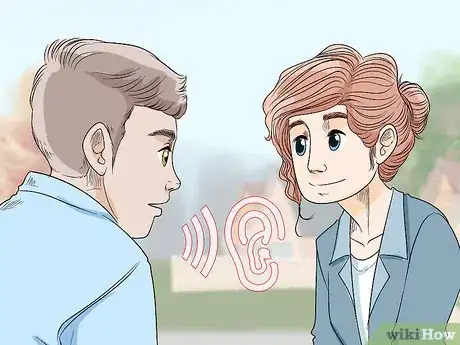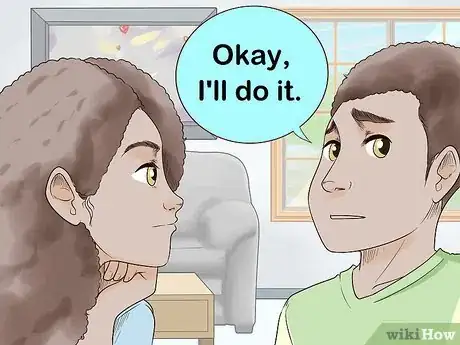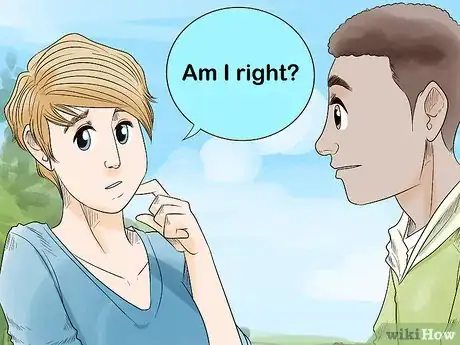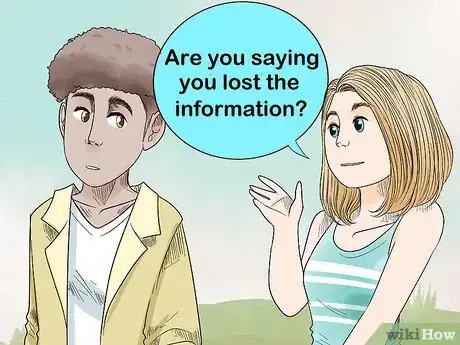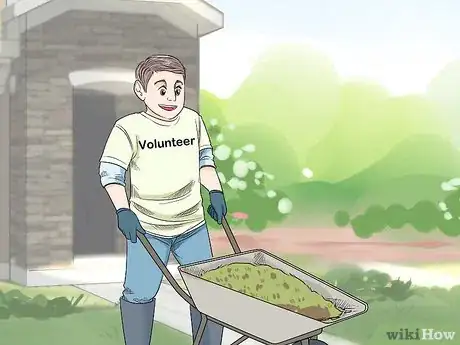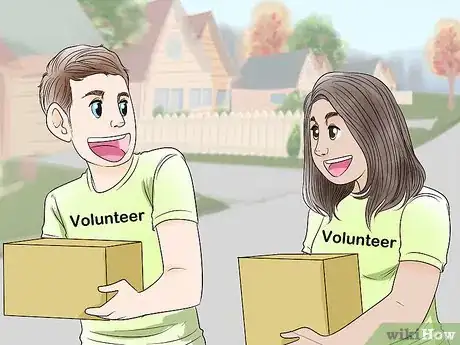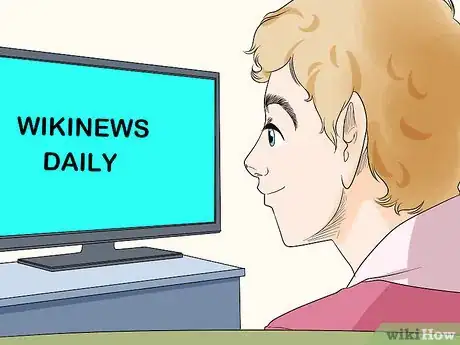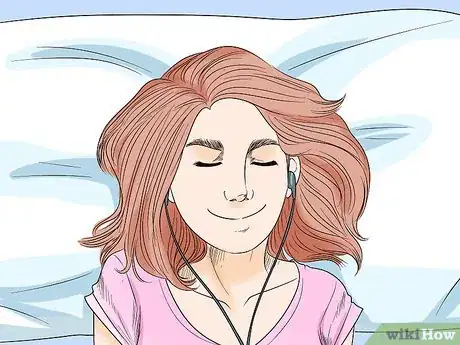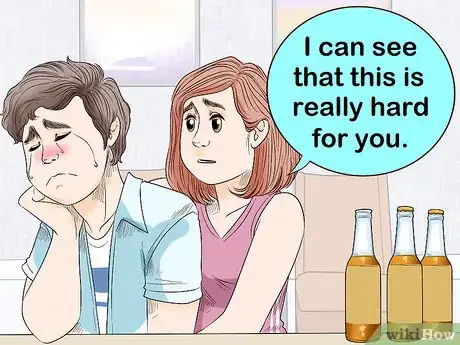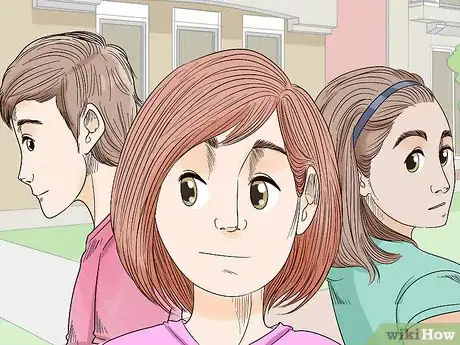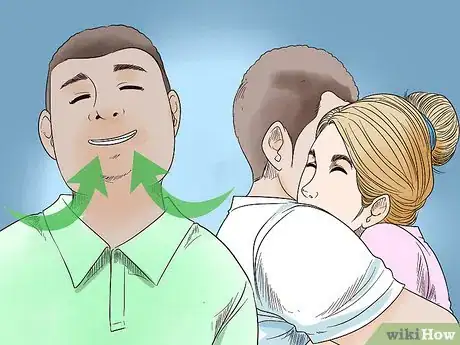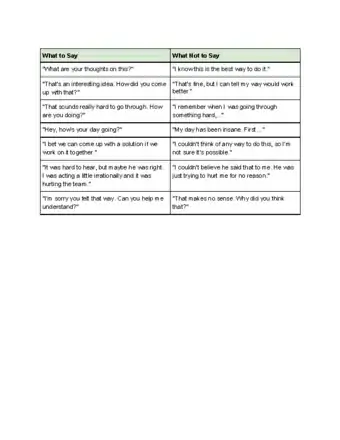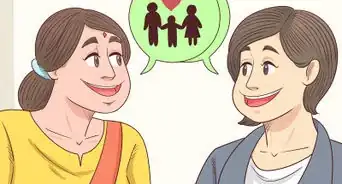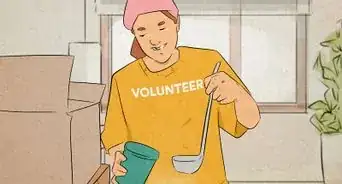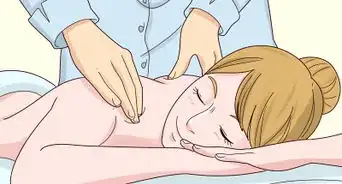This article was co-authored by Klare Heston, LCSW. Klare Heston is a Licensed Independent Clinical Social Worker based in Cleveland, Ohio. With experience in academic counseling and clinical supervision, Klare received her Master of Social Work from the Virginia Commonwealth University in 1983. She also holds a 2-Year Post-Graduate Certificate from the Gestalt Institute of Cleveland, as well as certification in Family Therapy, Supervision, Mediation, and Trauma Recovery and Treatment (EMDR).
There are 10 references cited in this article, which can be found at the bottom of the page.
This article has been viewed 40,178 times.
Modern society often encourages self-centered thinking: it says you should be focused on getting yourself where you want to be, sometimes at the expense of others. But focusing on yourself too much can cause problems, like distancing you from others or even causing you to miss out on opportunities. If you want to stop being so individualistic, turning some of that inward attention onto others will significantly improve your relationships and help you become a happier, more fulfilled person.
Steps
Being a Good Listener
-
1Hear people out when they're talking. When others speak to you, really listen. That is, listen to understand their message, not to to prepare your response. Turn to face them, make occasional eye contact, and avoid interrupting.[1]
- Try to plan your conversations in distraction-free environments where both speakers can communicate and listen attentively.
-
2Notice their verbal and nonverbal cues. Words tell a lot about what a person is saying, but they don't give the full picture. Tone of voice, facial expressions, and body language all give insight into what the person is trying to communicate.[2]
- Pay attention to these cues when communicating. They often support the message, but they sometimes contradict the message.
- For example, you ask a favor from someone and they say, “Okay, I'll do it.” Yet their voice sounds exasperated, their facial expression looks worried, and their body language is closed, they may not actually want to do the favor.
Advertisement -
3Restate what was said to be sure you got the right message. Paraphrasing what the other person said before you respond with your own ideas can help you avoid misunderstandings. Plus, restating is a way to show the person you were actually listening, and not otherwise distracted by your own thoughts.[3]
- This might sound like, “From what I'm hearing, you seem to be really overwhelmed about the responsibilities of the coming week. Am I right?”
- If the person confirms that you heard right, then you can share your own response.
-
4Ask clarifying questions if you don't understand. Is something unclear about the person's message? If so, pose a question to get clarification.[4]
- An example of a clarifying question might be, “I'm not sure if I get what you're trying to say. Are you saying you lost the information?”
- You could also say something like "Did I hear you correctly?"
Shifting Your Focus
-
1Do favors without considering what's in it for you. Instead of weighing the possible benefits of helping others, simply say “yes." If the request is within your means, agree to it. Don't spend time figuring out what you’ll get out of the deal.[5]
- Over time, you'll likely notice that you don't even care what you get out of it anymore— it will feel good just because you're being selfless.
-
2Volunteer in your local community. Volunteerism is an excellent way to direct your attention outwards, to others. Find a place of need in your city or town and fill it.[6]
- Volunteer opportunities are endless, such as reading to children at the library, caring for pets at an animal shelter, or looking after preschoolers so their parents can attend church.
-
3Advocate for a cause you believe in. Expand your volunteer efforts to include organizations in your region or country that represent issues you care about. Sign up as an advocate and find ways you can spread the organization’s message to others.[7]
- For example, if you have a relative with mental health issues, you might participate in a regional NAMI chapter or help organize a mental health awareness campaign.
- If you're concerned about political decisions, speak at your local library, write a letter to a congressperson, or start an online petition.
- Being an advocate may involve community service just like hands-on volunteering, but the main point is to spread awareness about a particular cause.
-
4Get up to speed on current events. If you're self-absorbed, you may show little interest in circumstances that don't directly affect you. However, certain events happening in your region, nation, or the world may actually affect your family, friends, or neighbors.[8]
- Start watching the news—both locally and nationally—to learn more about what issues are affecting people near and far.
- Staying up-to-date on events can also educate you about the concerns of others, helping you to focus on yourself less.
-
5Stand in awe of something. Being self-focused can cause you to miss out on all the amazing things the world has to offer. For the next week or so, make an effort to notice the wonder around you.[9]
- When you listen to music, close your eyes and lose yourself in the notes. Go outside and marvel at natural landscapes and wildlife. Visit a museum and appreciate the history and art.
Learning Empathy
-
1Imagine stepping into the shoes of others. Being empathetic can help you tune in more to the experiences of others. It can help build bridges and increase understanding.[10]
- Choose one person each day to truly notice. Perhaps you'll observe a classmate who seems to be having a hard time, or you might focus on one of your siblings or parents.
- Step outside of your own experience into theirs. Ask yourself what it would be like to live this person's life. Doing this will likely change the way you look at and treat this person.
-
2Practice validating others, even if you don't totally agree. People want to feel heard and understood. If a friend or family member seems to be having a hard time with something, first actively listen and then try to validate their experience.[11]
- Validation might sound like, “I can see that this is really hard for you" or “I'm sorry you're feeling this way.”
- The wonderful thing about validation is you don't even have to agree with what the person is saying to offer it. It's a way to acknowledge shared humanity (and pain), and that helps you get closer to others.
-
3Spend time watching strangers. Do you ever take out the time to observe the people you encounter in daily life, or do you merely pass through on the way to your next appointment or destination? Purposely observing others helps you to stop being less self-absorbed and become more in tune with the world around you.
- Wile away an afternoon on a park bench, in a coffee shop, or at a corner cafe. Simply observe as people go to and fro.
- Imagine what the people are thinking and feeling. Make up stories about where they are headed or the conversations they are having.
-
4Perform loving-kindness meditation directed at others. Choose about 5 to 10 minutes each day to sit in silence. Close your eyes and take deep, cleansing breaths. Bring to mind a person in your life— perhaps a close friend, a family member or an acquaintance.[12]
- Use your meditation session to radiate good thoughts towards the person, almost as if you were giving them a virtual hug.
- Choose a new person to focus on each day.
-
5Read more fiction. Fiction books allow you to experience the world from someone else's perspective. As a result of being in different character's heads, you come to feel greater empathy for the unique experiences of others.
- Check out a fiction book from your local library. As you read, try to notice text that tells you what each character is thinking or feeling. Then, draw context clues from the surrounding text to determine why they might think or feel that way.
Being Considerate in Conversation
Expert Q&A
-
QuestionWhat does it mean when a person is self-absorbed?
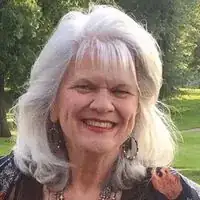 Klare Heston, LCSWKlare Heston is a Licensed Independent Clinical Social Worker based in Cleveland, Ohio. With experience in academic counseling and clinical supervision, Klare received her Master of Social Work from the Virginia Commonwealth University in 1983. She also holds a 2-Year Post-Graduate Certificate from the Gestalt Institute of Cleveland, as well as certification in Family Therapy, Supervision, Mediation, and Trauma Recovery and Treatment (EMDR).
Klare Heston, LCSWKlare Heston is a Licensed Independent Clinical Social Worker based in Cleveland, Ohio. With experience in academic counseling and clinical supervision, Klare received her Master of Social Work from the Virginia Commonwealth University in 1983. She also holds a 2-Year Post-Graduate Certificate from the Gestalt Institute of Cleveland, as well as certification in Family Therapy, Supervision, Mediation, and Trauma Recovery and Treatment (EMDR).
Licensed Social Worker It means that they are only looking at or considering their own ideas, thoughts, or feelings. Their lens is turned inward and not outward at others.
It means that they are only looking at or considering their own ideas, thoughts, or feelings. Their lens is turned inward and not outward at others. -
QuestionCan self-absorbed people change?
 Klare Heston, LCSWKlare Heston is a Licensed Independent Clinical Social Worker based in Cleveland, Ohio. With experience in academic counseling and clinical supervision, Klare received her Master of Social Work from the Virginia Commonwealth University in 1983. She also holds a 2-Year Post-Graduate Certificate from the Gestalt Institute of Cleveland, as well as certification in Family Therapy, Supervision, Mediation, and Trauma Recovery and Treatment (EMDR).
Klare Heston, LCSWKlare Heston is a Licensed Independent Clinical Social Worker based in Cleveland, Ohio. With experience in academic counseling and clinical supervision, Klare received her Master of Social Work from the Virginia Commonwealth University in 1983. She also holds a 2-Year Post-Graduate Certificate from the Gestalt Institute of Cleveland, as well as certification in Family Therapy, Supervision, Mediation, and Trauma Recovery and Treatment (EMDR).
Licensed Social Worker Yes, certainly anyone who wants to change can do so. But first, they must acknowledge their self-absorption. They need honest, non-judgmental feedback from those they trust and care about.
Yes, certainly anyone who wants to change can do so. But first, they must acknowledge their self-absorption. They need honest, non-judgmental feedback from those they trust and care about. -
QuestionHow do I stop being selfish and self-absorbed?
 Klare Heston, LCSWKlare Heston is a Licensed Independent Clinical Social Worker based in Cleveland, Ohio. With experience in academic counseling and clinical supervision, Klare received her Master of Social Work from the Virginia Commonwealth University in 1983. She also holds a 2-Year Post-Graduate Certificate from the Gestalt Institute of Cleveland, as well as certification in Family Therapy, Supervision, Mediation, and Trauma Recovery and Treatment (EMDR).
Klare Heston, LCSWKlare Heston is a Licensed Independent Clinical Social Worker based in Cleveland, Ohio. With experience in academic counseling and clinical supervision, Klare received her Master of Social Work from the Virginia Commonwealth University in 1983. She also holds a 2-Year Post-Graduate Certificate from the Gestalt Institute of Cleveland, as well as certification in Family Therapy, Supervision, Mediation, and Trauma Recovery and Treatment (EMDR).
Licensed Social Worker Next time you are around someone else, let them initiate the conversation. Or ask a question about their life and show interest in them. You can bring up your own stuff, but maybe preface it with: "Is it okay if I run a situation by you?"
Next time you are around someone else, let them initiate the conversation. Or ask a question about their life and show interest in them. You can bring up your own stuff, but maybe preface it with: "Is it okay if I run a situation by you?"
References
- ↑ https://ggia.berkeley.edu/practice/active_listening#data-tab-how
- ↑ https://www.helpguide.org/articles/relationships-communication/nonverbal-communication.htm
- ↑ https://psychcentral.com/lib/become-a-better-listener-active-listening/
- ↑ https://ggia.berkeley.edu/practice/active_listening#data-tab-how
- ↑ https://www.psychologytoday.com/blog/talking-apes/201607/ask-and-you-shall-receive
- ↑ http://www.apa.org/monitor/dec06/helping.aspx
- ↑ https://www.huffingtonpost.com/angela-greene/the-importance-of-advocacy_b_9816664.html
- ↑ https://www.teenlife.com/blogs/why-teens-need-follow-current-events
- ↑ https://greatergood.berkeley.edu/article/item/an_awesome_way_to_make_kids_less_self_absorbed
